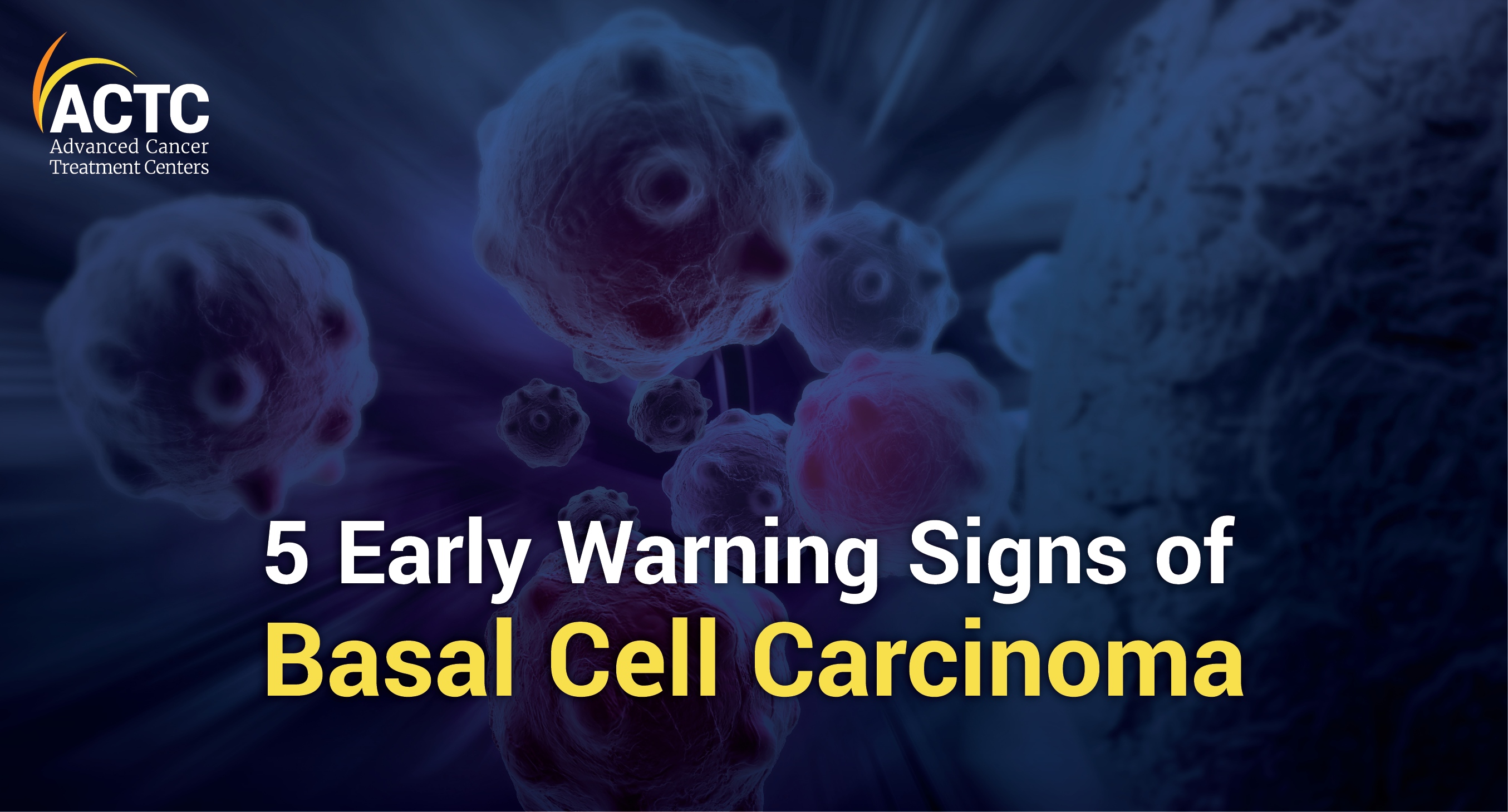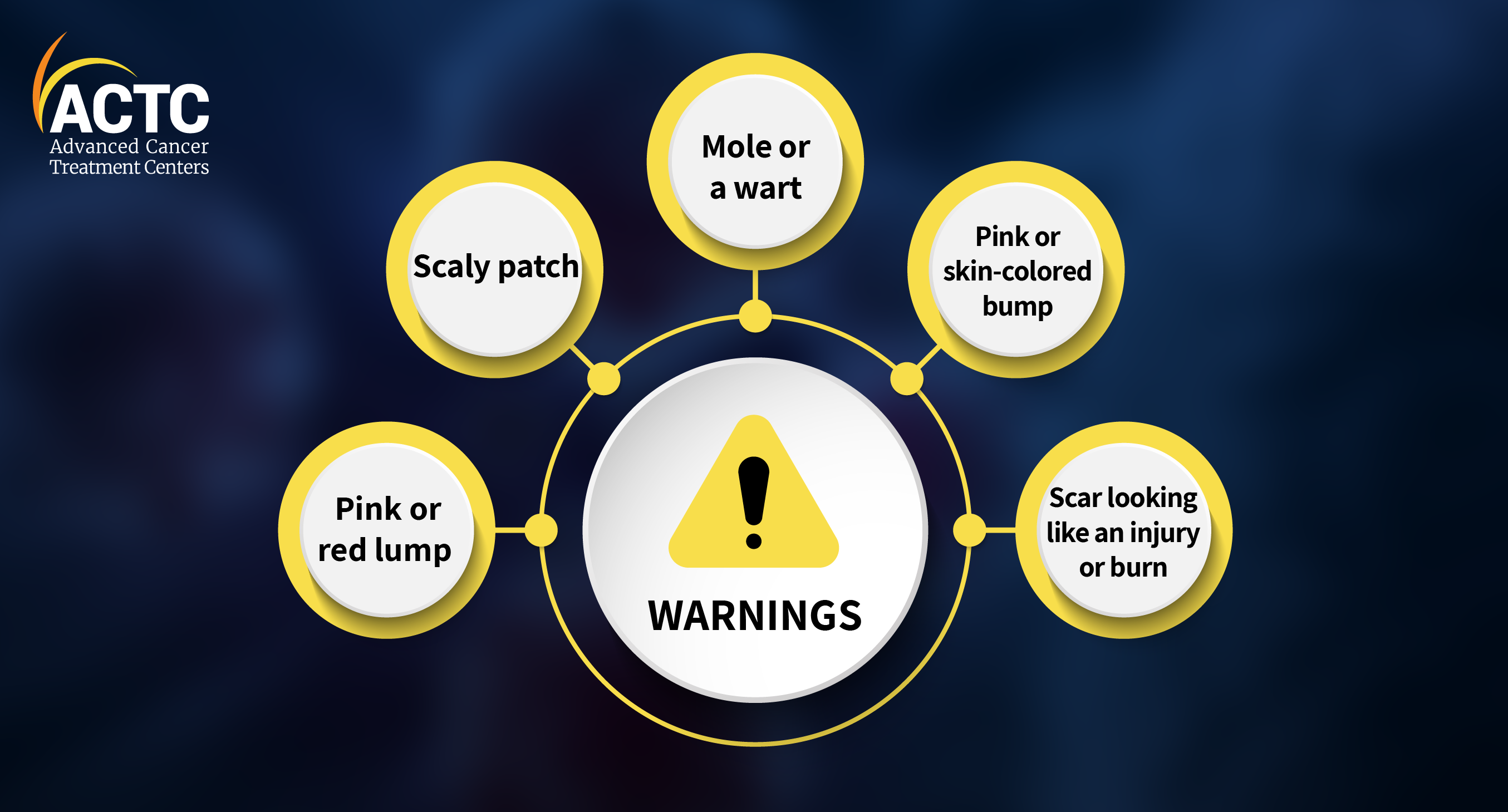
Book a Consultation
Thank you!
Your form has been sent successfully.



August 27, 2025
Your skin is your body’s first line of defense against the sun’s UV (ultraviolet) rays. Over time, UV rays can harm the DNA inside your skin cells, potentially causing skin cancers.
Regularly checking your skin can help you notice changes early, making treatment simpler. It’s important to take new or changing spots seriously and not wait to get them checked.
If you’re noticing a spot, here’s what BCC means.
Basal cell carcinoma (BCC) is a type of skin cancer that begins in basal cells located at the bottom of the epidermis (the top skin layer). It frequently appears on sun-exposed areas like the head and neck, but can appear anywhere on the body.
BCC grows slowly and rarely spreads to other areas. However, if left untreated, it can damage surrounding skin and tissue, causing disfigurement.
So how can you recognize it early?

Basal cell carcinoma can appear differently, but here are common signs you can look out for:
Skin cancers are among the most common cancers, and the majority are BCC. Though it's very uncommon for BCC to spread beyond the initial spot, the cancer can still become serious.
If left untreated, a BCC lesion can grow deep into the skin, harming nearby nerves and blood vessels. Over time, this can cause lasting damage, including permanent scars or disfigurement. Knowing what to look for helps you take action early.
When you visit your doctor, they'll first carefully examine the suspicious area. They often use a special lighted magnifier (dermoscopy) to get a clearer look at your skin.
To confirm if the lesion is BCC, the doctor will typically perform a biopsy. This involves numbing the area and taking a small sample of skin cells, which are then examined under a microscope.
Once confirmed, treatment is tailored to you.
Treatment choices depend on several factors, including your overall health, age, and specifics of the cancer, such as its size, depth, and location.
Early diagnosis and treatment are key to simpler treatment and quicker recovery, minimizing the amount of skin affected and reducing healing time.

Not sure when to call? Reach out to your doctor promptly if you notice any of these signs:
Taking these signs seriously can ensure quick action and easier treatment. Early action can protect your skin and give you peace of mind.
Advanced Cancer Treatment Centers can help provide personalized care for cancer fighters through radiation treatment, chemotherapy, immunotherapy, targeted therapy, and hormone therapy.
Call 352-345-4565 or book an appointment.


January 07, 2026
A chemo port is a small device placed under your skin that makes recei...
KNOW MORE

December 24, 2025
It's natural to wonder if testosterone replacement therapy (TRT) is sa...
KNOW MORE

December 24, 2025
A rash that will not calm down is scary, especially when it changes or...
KNOW MORE

December 24, 2025
Florida’s lung cancer burden remains significant and affects many fa...
KNOW MORE

December 24, 2025
A partial hysterectomy, also called a supracervical hysterectomy, is s...
KNOW MORE

December 24, 2025
Finding a rash on your breast can be unsettling, but remember, many ra...
KNOW MORE
